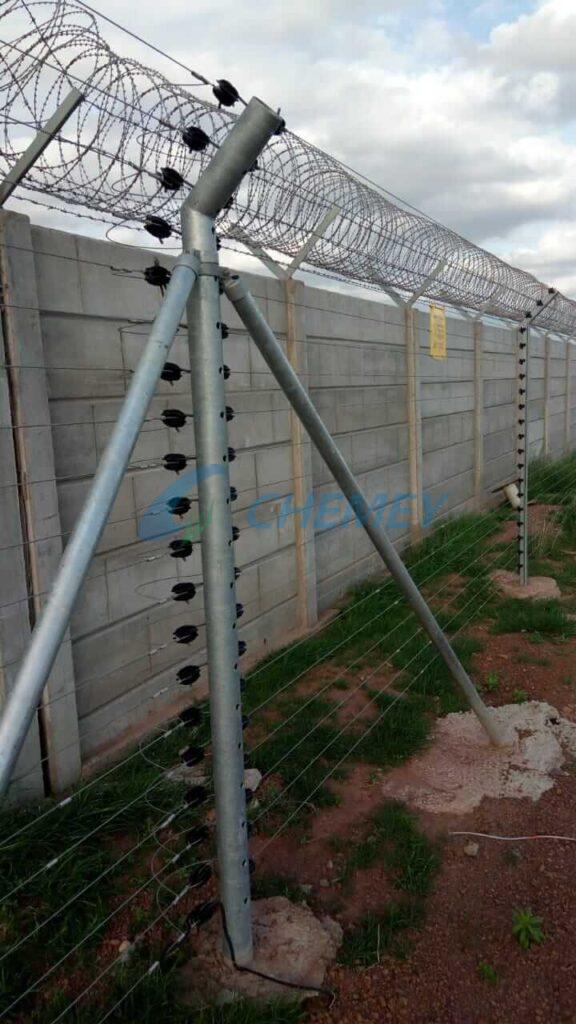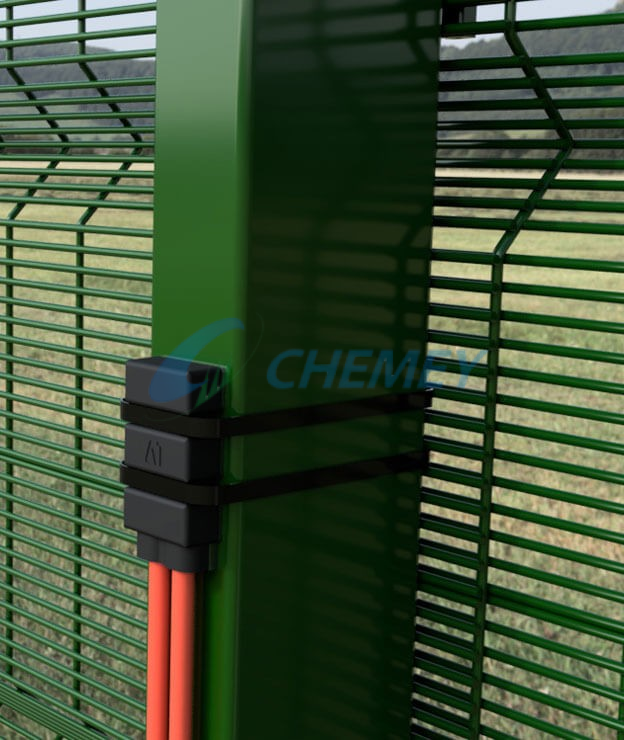Electric fences are one of the most popular intrusion detection tools used across the world, especially in industrial areas and large farms. They are extremely easy to install and maintain, and they provide robust security and safety from any kind of intrusion and trespassing. Be it using them on agricultural land to protect the crop from animals, or installing it in high-security zones for protection from unauthorized people entering the area, electric fences make for an ideal choice.
As far as commercial properties are concerned, it is safe and legal to use electric fences. But when it comes to installing them in residential areas or private properties, special care has to be taken to use only the Certified Energizers and installing using the correct practices
Fences are allowed to be installed if they are certified, safe energizers, some several clauses and pre-requisites need to be met to install them. The main reason behind these laws is to protect the general public and the residents of that area from the dangers of an electric fence. The states such as Mathura and Vrindavan, that do allow these fences are mostly for the protection of crops in agricultural land and farms to protect it from livestock and that too, you are required to put multiple signboards warning people about the presence of an electric fence, as it is a common practice to have an electric fence around the home to protect from monkey menace.
Electric Fences in Remote Areas
The fence thus installed, should be powered by a certified energizer so that it doesn’t pose any kind of threat to the lives of either wild animals or people accidentally coming in contact with it. It should only have enough power to give mild shocks to keep intruders away.

But, as mentioned above, these provisions have been made to safeguard crops or gardens from livestock.
However, installing an electric fence is legal, if it is completely on your property in certain states.
Rules and Regulations that You Must Follow
There are fewer clearly defined rules when it comes to installing an electric fence in residential properties:
- The energizer employed in the electric fence should be IEC Certified with a 60335 2 76 certificate.
Electric fences for residential properties are still not as common as it is for commercial properties in India. There are certain points you must keep in mind:
- The wires connecting the electric fence should not cross above the power or communication wires above them
- Use high-quality products and get them installed by a professional to make them risk-free
- Barbed wires or razor wires should not be used to be powered by an energizer
- It should be installed in such a way that there is no risk of humans or animals getting entangled in the wires
- The energizer earth electrode should be placed at least one meter beneath the ground. The connected leads running under the ground should be covered with insulated tubes
- The energizer and the earth wire should be at a safe distance from the source of power
- Earth stakes should also be at a safe distance from water pipes, underground communication wires, etc.
The main idea behind setting up such strict laws, rules, and regulations is to ensure the safety of the general public. Although electric fences are designed in such a way that they only provide a strong shock depending on their power, they are not lethal. High-voltage electric fences are usually used in industrial areas or high-security zones where the chances of intrusion are higher. But in residential properties, even low-voltage fences can be safe enough to keep intruders away.
FAQs About Electric Fences
How much power does an electric fence use?
Between 2 to 25 watts How Many Watts Does An Electric Fence Use? Watt per hour is the power the electric fence consumes in one hour during operation. Generally, the energy consumption of most electric fences ranges between 2 to 25 watts, depending on the model you are using.
How long does an electric fence last?
Barbed wire or woven-wire fences may only last 7 – 12 years, while permanent, high tensile, electric fences can last 20-plus years.
How long can an electric fence be?
A high-joule plug-in energizer can power 15 to 20 miles of electric fence. It can generate 6,500 to 8,000 volts. The newer models of plug-in energizers won’t start fires and won’t short out like the older models tended to do.



